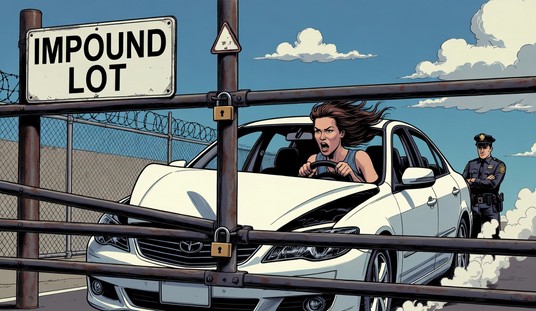Together for thirty years, R.E.M.’s greatest albums showcase the Athens, Georgia, legends’ incredible artistic progression for what it was — a true Rock rarity. They also serve as a welcome introduction to the rest of the band’s deep discography. Though there’s plenty of great writing about what the band’s music means to contemporary listeners in relation to their breakup earlier this week, I prefer to focus on the music itself to see what made R.E.M. stand apart from the crowd.
These five albums have proven to be the ones I’ve gone back to most often, the albums which provide the best look at what the band had to offer musically, where they’ve been and where we’re left now that there will be no sixteenth album. These may not be the albums you’d expect from a critic, since we’re supposed to prefer only the “indie” releases, shying away from respecting the hits which saw “mainstream” success, leading to the band’s inevitable demise. As a listener I don’t feel there’s a need for “guilty” pleasures, and in the case of R.E.M. the singles are as much a part of why they’ll be remembered as are the indie albums that built their success to the point where multi-platinum success was a reality.
Few bands in the modern rock or alternative landscape have managed to craft such a diverse discography, so many albums which managed to build upon each other, creating mainstream success through recording, touring and then living the music and letting it live through them. Though R.E.M. will be remembered for their singles, a look back through the band’s strongest albums shows that their music was always built on a strong recognition of pop hooks and songwriting. The band has left us with fifteen albums which cement their legacy, leaving plenty of room for future exploration. Their influence on the world of rock and alternative is far from over.
– – – – –
R.E.M. was forced to transition to being a trio when drummer Bill Barry left the band in the late 90s, and though they attempted to carry on with experimentations with drum-machines on Up, R.E.M.’s early 2000s albums (Reveal and Around The Sun) showed they were floundering creatively. The latter album actually failed to even go Gold in the United States, the first album since Document put them into the stratosphere, to fail to do so.
Thankfully, Accelerate, their 14th studio album was a complete turnaround — the band seemed reinvigorated, accelerating their sound by returning to the garage rock of their late 80s / early 90s work. It was immediately clear from the up-tempo opening track “Living Well Is The Best Revenge,” as Michael Stipe piled on the garage-rock hooks to push their sound back to the underground days of their first four albums, while emphasizing their studio abilities in the strong production values. “I’m not one to sit and spin,” he growls, “because living well is the best revenge!” Indeed. Accelerate was a tight 11-track album which proved you can go back again.
(Must Hear: “Living Well Is The Best Revenge”, “Houston”, “Supernatural Superserious”)
http://www.youtube.com/watch?v=Yl78XMnb8Xw
#4 — Reckoning (1984)
Already a sonic reinvention on just their second full album, R.E.M. returns to the garage-rock of their early demos, proving that a band’s music could be upfront in its creative intentions without necessarily being “straightforward.” Though the follow-up to Murmur roughened the band’s garage edges, emphasizing the rock end of their sonic palate, R.E.M. also strengthened their hooks significantly on Reckoning. It’s particularly noticeable on “So. Central Rain (I’m Sorry),” which was perhaps the first R.E.M. single to hint at the mainstream palatability which would later lead to their breakthrough with ballads like “Everybody Hurts.”
Their credibility, thankfully, remained intact, as the band found itself with a college radio hit on its hands, while they were still able to earn their fans through touring, letting the songs build a personal presence through their live show. Therefore they built their audience one fan at a time, and by the time they’d find mainstream success it would be because the music led the mainstream to them rather than the other way around. And though Michael Stipe’s vocals during this era have a reputation for being indecipherable, I’d say that’s something of an unearned exaggeration. The best songs on Reckoning stand out because they’re well crafted enough to emphasize R.E.M. as a whole rather than as the sum of its parts. Though Stipe would later work to annunciate his vocals more clearly, the vocals fit the nature of their record-by-the-seat-of-your-pants reality at the time. This is classic alternative which stands with the best.
(Must Hear: “So. Central Rain (I’m Sorry)”, “Pretty Persuasion”)
#3 — Murmur (1983)
Though Murmur came out two years after the release of the single “Radio Free Europe,” it was that single and an EP, Crazy Town, which had fueled the band’s cult following. By the time Murmur was issued in 1983, word of mouth had built sufficiently to allow the new music to find its way into the hands of rock critics throughout the country. I.R.S. Records gave the band time to develop their sound, something which would be unheard of today, and though the album wasn’t a huge seller at the time of release, Rolling Stone chose Murmur as the leading release of the year, over Michael Jackson’s Thriller and Sting’s Synchronicity.
The band’s sound was already clearly established, particularly Peter Buck’s signature guitar riffs, and they had a clear sense of what made for a jangle-pop garage recording worth hearing and repeating. Though the music is more lo-fi than what the band would later produce, the quality songs here stand out in spades. “Pilgrimage,” “Perfect Circle,” and “Catapult” stand out as equals to “Radio Free Europe” in the vein of what would later become “mainstream.” Murmur would inspire legions of imitators, launching R.E.M. to the forefront of a new scene. Their very first album is strong enough, timeless enough in its songwriting, to remain one of the essential garage rock touchstones of that era. (Must Hear: “Radio Free Europe”, “Catapult”)
While the entirety of the band’s ’80s output shows incredible willingness to progress as musicians, their fifth album would prove to be their true breakthrough. With Document, it is said that the band went mainstream, which to modern ears might sound like selling out. But in R.E.M.’s case there was less of an effort to go mainstream as there was the matter of the band’s burgeoning fan-base. It was this mass of listeners, primed by four stellar albums over a span of as many years, which forced the mainstream to come to R.E.M. There’s no dramatic sonic shift here; the band always wrote jangly pop songs in the garage rock aesthetic, many of which emphasized hooks and melodic structure even as they maintained an alternative edge. But four solid albums had caused the word to spread, giving songs like “It’s the End of the world as We Know It” and “The One I Love” the shot at a wide audience they richly deserved.
Scott Litt, who would go on to produce every album the band would record over the next decade, did push the band to a more mainstream place from a production standpoint, but he kept their enigmatic tendencies intact. Document stands as a testament to just how much the band had honed their sound through hard work, and the masses got to hear the whole package. Sure, Michael Stipe sang his lyrics more clearly, so you could actually tell what he was singing, but the words’ meaning remained shrouded in mystery. “End of the World” didn’t have to make sense to be a hit – it was merely a great song at the right time, allowing it to make a cultural impact. “The One I Love” remains the band’s strongest song in a career marked by amazing songwriting. It’s a perfect pop nugget which seems to feature two competing choruses; the verse and the actual chorus duel as equally singable, and yet the song also played well to the listeners who would later go on to spawn a revolution of their own through grunge.
(Must Hear: “It’s the End of the World as We Know It (And I Feel Fine)”, “The One I Love”)

#1 — Automatic for the People (1992)
The band’s eighth album turned away from sweet pop to create my all-time favorite R.E.M. record in Automatic for the People. On the surface these are songs about life and death, love and loss, but the music is epic as they attempt to transition from the indie underground albums they’d done in the 80s to maintaining that quality on albums which would bring guaranteed mainstream ears.
By 1992, R.E.M. had recorded eight albums which propelled them to the peak of rock star status. But they were beginning to wear themselves out physically and mentally. The tour to support Document and Green had worn the band to the bone, and Out of Time and Automatic for the People were therefore mainly crafted in the studio. Those two albums in particular stood out from the rest of R.E.M.’s prior output, but Automatic for the People stepped away from the pure pop sheen of songs like “Shiny Happy People,” proving to be a darker, more varied glimpse of what a band at the top of its form could do in a studio with enough time to breathe.
“Drive” fit right in with the grunge of Pearl Jam and Nirvana because, while emphasizing a more poppy aesthetic, the song still profoundly speaks of alienation and isolation, themes which drew fans to the band in droves once the songs hit MTV. “Everybody Hurts” stood out in particular as a touchpoint of that MTV era, a pure pop ballad which lives on its simple truth and melodic strength. But “Man on the Moon” was Stipe’s direct guarantee to his fans that, like Andy Kaufman, he would always have surprises for his listeners. “If you believe there’s nothing up his sleeve, then nothing is cool,” he’d sing of Kaufman’s ambitious, enigmatic career in comedy, giving an indirect cue to his fans of his own artistic desires.
The band would continue to find success through the mid-‘90s, but they would never again match the raw depth and rare beauty of Automatic for the People, which remains their strongest album in this critic’s opinion. For new listeners looking for a place to jump in, don’t fear the singles or the more commercial bent of this album; the material more than stands up for itself, energizing listeners to then dive into the depths of R.E.M.’s massive discography with all their vigor. Once that happens, you’ll immediately understand what set R.E.M. apart from the band’s contemporaries, and why their fans will so deeply miss their music in the future.
(Must Hear: “Drive”, “Man on the Moon”, “Nightswimming”)
http://www.youtube.com/watch?v=xQN7A6Vl1H4&ob=av2e














Join the conversation as a VIP Member